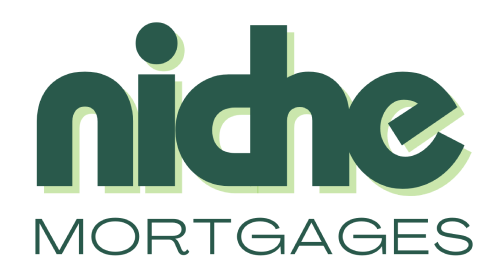Build Your Vision with the Right Construction Mortgage
Our experienced team specializes in construction mortgage solutions across Canada. We work with a wide network of lenders, including major banks, B-lenders, and private investors, to secure funding tailored to your needs, timeline, and risk profile.
Do You Need a Construction Mortgage?
If you’re planning to build a new home, renovate extensively, or take on a custom build from the ground up, you likely need a construction mortgage, a specialized type of financing designed to fund your project in stages.
At Niche Mortgages, we help you understand which structure works best for construction loans for your project, whether it’s a progress-draw mortgage, a completion mortgage, or private construction financing.
Who We Help
At Niche Mortgages, we understand that no two borrowers or building projects are the same.
That’s why we offer personalized construction mortgage solutions based on your financial reality, not just standard bank criteria.
Whether you’re self-employed, have complex credit history, or you’re new to Canada, our team is here to help you build with confidence.
Business Owners Building Property
You might not draw a large salary or show high personal income on paper, but if your business has strong cash flow or retained earnings, we can structure your mortgage to reflect your true financial strength.
Clients with Credit Challenges
Don’t let past issues stop your future build. We work with lenders who understand real-life credit situations including collections, bankruptcy, or high utilization and can still offer practical construction financing options.
Pre-Sale Buyers Who Need Construction Financing
If you bought a pre-sale property and your financial situation has changed, we help you navigate the challenges of completing the transaction with the right construction mortgage solution.
First-Time Builders and Newcomers to Canada
If you’re building your first home or recently received your permanent residency, we’ll walk you through every step of the construction financing process. Many lenders offer special programs for newcomers with more flexible guidelines than traditional banks.

Let’s Build Together
You’ve got the vision we’ll help you fund it. With the right construction mortgage, your project can move forward without delays or surprises.
Contact us now or try our Mortgage Calculator to estimate your project costs.
FAQs
We’ve put together answers to some of the most common questions we hear from clients about construction mortgages so you can move forward with clarity and confidence.
Free ConsultationA construction mortgage is a type of loan that provides funding in stages as your home or building project progresses. Instead of receiving the full amount upfront, funds are released at key milestones—such as after the foundation is poured, the framing is completed, or the final inspection is passed. This structure helps manage costs and ensures that financing aligns with your build timeline.
Yes. At Niche Mortgages, we specialize in helping business owners and self-employed clients secure construction loans—even if your income isn’t traditionally reported. We look at bank deposits, retained earnings, and overall financial health to match you with lenders who understand non-traditional income.
Having collections, a past bankruptcy, or high credit utilization doesn’t automatically disqualify you. We work with alternative and private lenders who are open to higher-risk files and can offer flexible construction financing solutions tailored to your situation.
Absolutely. We assist first-time builders and newcomers with PR status (within 5 years) in securing the right construction financing. Many lenders offer special programs with more lenient debt ratio guidelines. Plus, our team provides multilingual support in English, Cantonese, and Mandarin to guide you every step of the way.
Start by contacting our team for a personalized consultation. We’ll assess your financial situation, your project details, and recommend the best type of construction mortgage for your needs—whether it’s a progress-draw loan, completion mortgage, or private lending solution.


